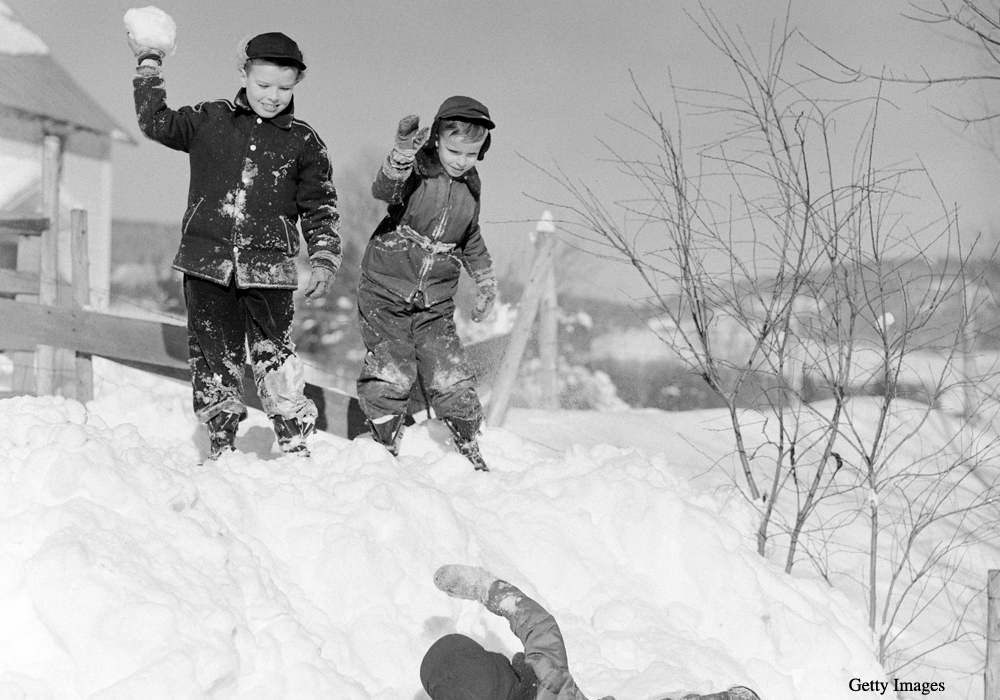A lack of central heating, running water and reliable school buses didn’t faze hardy kids growing up on the farm decades ago
Five in the morning, minus 27, and I hear an owl softly hooting somewhere in the vicinity. It is no doubt perched on a nearby hydro pole, its form silhouetted by the light of a pale full moon. The image brings back memories of winter mornings on the farm where I grew up.
Our farmhouse was poorly insulated, if at all, and I was often awakened by the sound of my mother cracking the ice in the kitchen wash basin with the back of the dipper. An owl hooted in the trees behind my bedroom window, and I snuggled down under a pile of patchwork quilts, waiting for Mother to stuff some newspaper and kindling into the McClary stove and light the fire.
Read Also

Rural Manitoba resources slim on natural disaster planning
A study from Brandon University’s Rural Development Institute has found that many rural and small municipalities don’t have the staff or resources to make formal climate plans against natural disaster.
Before long, I could hear Dad making his way down the rickety cellar steps, where the logs in the homemade furnace had been reduced to ashes overnight. Feeble warmth soon began filtering out of the single register in the front room.
The back door squeaked and squawked and before long I heard the whine of the cream separator. It was time for my bare feet to hit the ice cold linoleum floor as I hastily dressed for school. A big bowl of oatmeal porridge with brown sugar and milk warmed my empty stomach as I waited for Mom to toast thick slabs of homemade bread, held over the open flames in the kitchen stove with a long-handled fork.
Dressed in a snowsuit, mittens and boots with my long braids wrapped around my neck for a scarf, I watched for the horse-drawn van to turn into our country lane. The thick frost on the single pane windows had formed into lacy patterns resembling ferns and palm trees. As the house gradually warmed up and the ice melted, my mother had to put rags on the window sills to sop up the moisture.
I wondered what it would be like to live in a land where winter never came.
The sound of sleigh bells gradually grew louder. As the horses came to a stop their muzzles were white with hoarfrost. Best described as a cross between a gypsy caravan and a covered wagon, the van had narrow benches along either side, with a small stove in the middle. I slid into place, tucked my lunch kit (a Rogers syrup pail) under the seat and was soon caught up in the chatter of the other school kids, ranging in age from six to 16.
Winter was bad enough, but spring had its own set of problems. The van driver, reluctant to prematurely switch the conveyance from runners to wheels, continually broke new trails. At least once a year, one side of the van would break through a rotten snow bank without warning, and over we’d go. No fire drill ever came close to the speed with which everyone vacated the van. The driver jumped out to quiet the alarmed horses, the older boys doused the flames in the little tin heater with snow and we younger kids huddled together until the van was tipped upright and we were on our way once more.
As we entered the four-room “modern” consolidated school, the hiss of steam radiators promised a warmer environment, but not always. Despite the enormous pile of cordwood at his disposal, on extremely cold days the caretaker was hard-pressed to bring the heating system up to pressure. We compensated by doing our lessons while still dressed in our outdoor clothes. Come recess, we didn’t have to waste time getting bundled up, giving us more time to play fox and goose or red line. And besides, the fresh air smelled good compared to that of woolen mitts drying on the radiators combined with the pungent odour of manure melting from the soles of gum rubber boots.
Despite the absence of central heating controlled by a thermostat, water available by just turning a tap, air fresheners plugged into the nearest outlet and reliable school buses, we made it through until spring.
Without modern conveniences, today’s generation cannot conceive of the idea. As for the owls, they still hoot with indignation at the thought of not being able to survive the rigours of a prairie winter.















